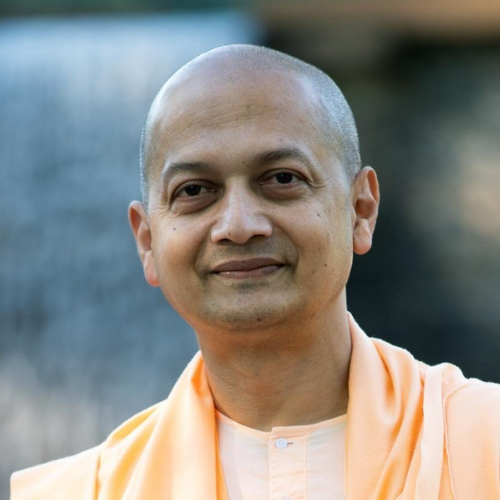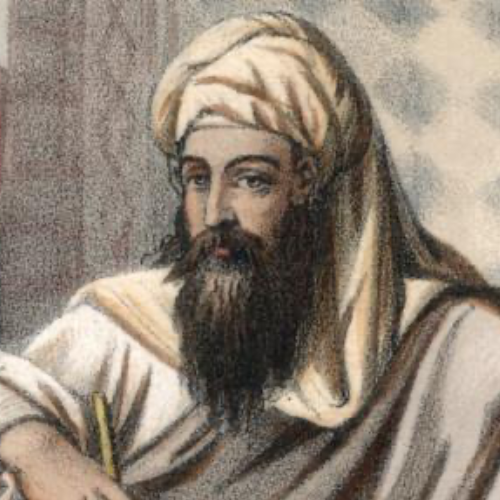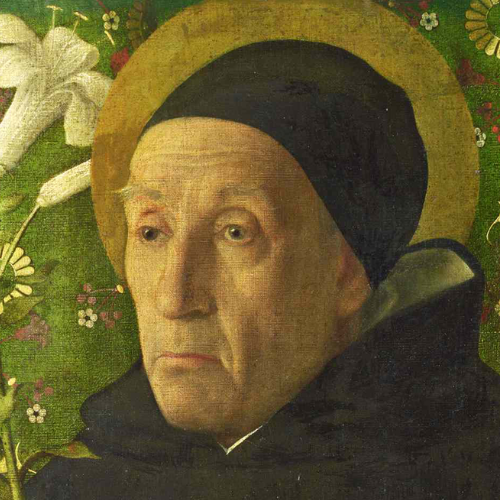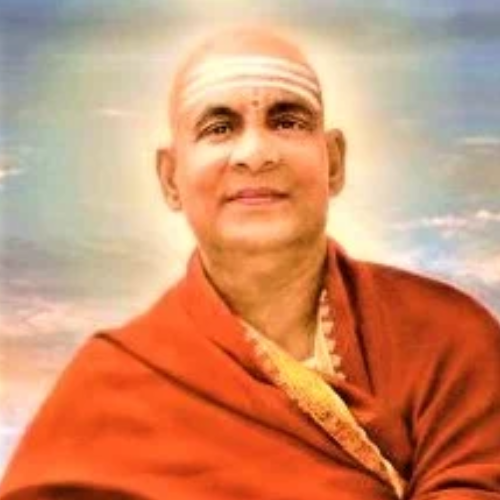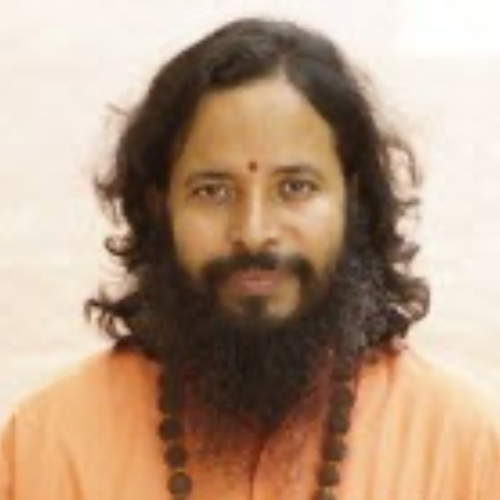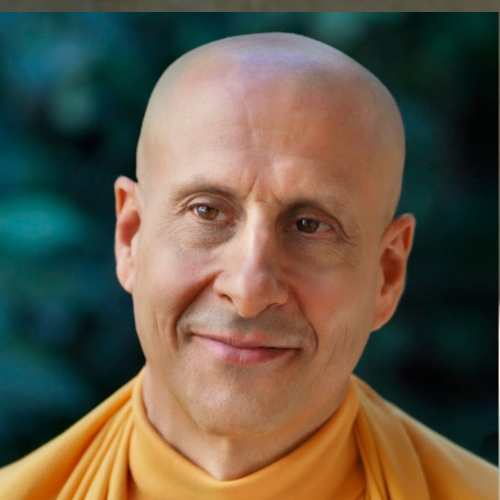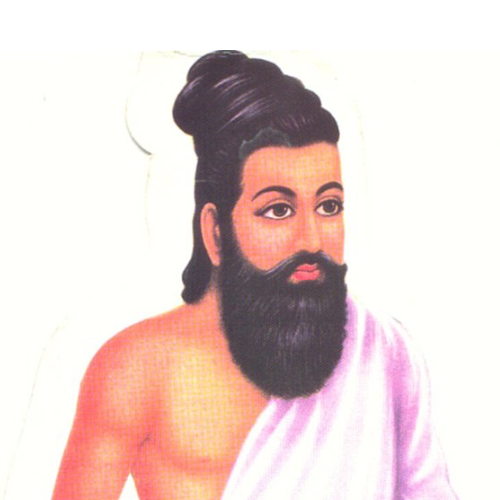When we make this division that whatever you experience is an object, very soon we begin to see that the things we experience in the world ‘out there’ are objects but then our body is an object too … And, even more stunning, mind is an object—thoughts, feelings, emotions. Clearly objects come in two varieties: one is a publicly shared (what you can see around you), and one is the first-person private set of objects (memories, thoughts, pleasure, pain, the very personality itself).
Consciousness alone is the reality and that which we take to be the non-conscious—matter, time, space, bodies, this world—these are appearances in consciousness, not apart from consciousness. Just like a dream when you go to sleep and dream—all the things that you see in the dream have no existence apart from your own mind. In the same way, this entire universe which we experience has no existence apart from consciousness … There is no reasonable, logical answer within the dream for a dream.
From this point of view, the universe is not produced, and it is not destroyed. It is nothing other than you. It appears in you, it shines in you, and it disappears within you.
There are religions which are self-inquiry based—based on self-inquiry into ‘What am I?’ … They are all based on inward inquiry.
Shankara’s commentary on the Brahma Sutra is the foundation of Advaita Vedanta, nondual Vedanta … ‘Nondual’ means apart from you—that real Self—there is no other thing. You are the only reality that exists. Apart from you, there is no second thing. If there is not two, a very interesting consequence is then everything that we see around you must be, in some sense, you only—not not apart from you … Consciousness is nondual meaning there is no second thing apart from consciousness … In you the consciousness, the entire universe is an appearance—not a second thing apart from you, hence you are that nondual consciousness … Oneness at the core expressed as the many—then what we have to practice is the harmony of the many.
There is an absolute reality, this world is an appearance of that reality, and you are that absolute reality.
The real Self is not an object of the senses: you can’t see it, you can’t hear it, you can’t smell it, you can’t touch it, you can’t taste it.
All the Abrahamic religions are God-centered, theistic religions. And, because this is the only kind of religion that the West has been used to, they find something like Buddhism very confusing. How can you have a religion without God? Whereas in India it’s no problem at all. Buddhism has been there for 2500 years, Jainism even before that … In Buddhism, there is no talk about God. It’s openly agnostic. In Jainism, there is no talk about God.
This universe which you experience, you are experiencing it in your consciousness. In your consciousness, no universe is born—it appears. No universe is produced. No universe actually evolves. It appears, it is experienced, it disappears.
In the ultimate reality, there is no question of will. What would the absolute will about? How would the absolute will anything? Willing is in the mind.
To think that I am this waking body and mind, this person, is an error based on ignorance of Turiya, my real Self … You think of yourself as this person—this seems to be the indubitable truth for us. What Vedanta claims is if you investigate in this method of the waking, dreaming, and deep sleep, you will come across the real you—not this person but the witness of this person, the Turiya in which this person is arising, shining, and falling again.
When you know yourself truly as you are, you will know the reality … Our reality is the ultimate reality. God is our own reality. You are Brahman. This is the ultimate reality.
Advaita says the entire universe is an object, known and unknown, appearing in consciousness—not distinct from consciousness, not constituting a countable second to consciousness. It’s not actually a second entity apart from consciousness, just as waves are not a countable second apart from water … All the universe, known and unknown, is nothing but consciousness appearing to itself as its own objects, and therefore not two, non-dual.
You are not really the waker. You are not really the dreamer. You are not the deep sleeper … Waking, dreaming, and deep sleep keep coming and going throughout our days, but behind it is one common consciousness, one common awareness.
The Upanishads contain perhaps the most ancient living teachings on spirituality. Spirituality at its most original and fresh … The basic teaching of the Upanishads is that there is an ultimate reality—this world that we experience, and how we experience ourselves, are all manifestations of that reality. We are that reality. If only we would know ourselves truly, we would realize ourselves to be that absolute reality. That absolute reality in the Upanishads is called ‘Brahman.’ Brahman literally means ‘the vast’. That is the closest word you’ve got in Vedanta to God.
The God-centered religions/mentality is likely to be devotional: worship oriented, likely to be dualistic, likely to be temple/church/mosque oriented, likely to be ritualistic. In contrast, you will find the self-inquiry based religions tend to be: more monastic in nature, more of an inquiry, more intellectual, meditative rather than devotional, more meditation hall oriented rather than temple oriented.
You the Self are the witness of the three states of waking, dreaming and deep sleep … All of the three states (waking, dreaming, deep sleep) are appearances—they appear and disappear in one consciousness which is the Turiya, your real nature.
There is no origin of this universe—no cessation, no creation, nor destruction of this universe. There is nobody who is in bondage. There is nobody who is a spiritual seeker who is doing spiritual practices. There is nobody who is seeking liberation, and indeed nobody who is liberated. This is the ultimate truth.
Everything that happens to you is a manifestation of the light of the divine—your own light, you yourself appear. Whom to blame? Whom to praise? Praiser praised, blamer blamed are but one—and that one is you. This is the ultimate truth … You are the truth.
The ultimate reality which you want to realize is beyond causality. You cannot do something and get it.
You can’t walk to the real Self … You cannot catch hold of it. It’s not an object.
Advaita Vedanta is one of the schools of Vedanta, but I would dare say it’s sort of preeminent because of certain reasons which make it peculiarly acceptable to the modern mind. There is little to no theology, and the emphasis is on experience and reason. Advaita Vedanta gives tremendous emphasis and importance to life as we experience it, and then uses reason to come to its conclusions … The conclusion of Advaita Vedanta was that we are, in a sense, profoundly mistaken about our own nature … Advaita’s purpose is to educate us, to shift our paradigm, so that we come to see the world and ourselves in that way.
This entire world, body, mind, this person, and all other persons are all appearances in Me, the one consciousness.
